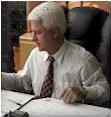Audience Development Group has been offering the opinion that like all formats Country, while not in crisis, is experiencing a balance-test. On one hand, many pre 2005 titles are testing as high as ever but they’re not getting played. On the other, there is a danger in the over-homogeneity with many current titles. Beverly Keel shares great perspective here.
Country music experiencing a ‘crisis in quality’
Beverly Keel
First it was country music purists vs. Florida Georgia Line. Recently it was Luke Bryan vs. Outlaw Country. Or maybe it began with Outlaw fans dissing Bryan. And then, of course, it’s been the supporters of female artists vs. the country radio programmers who rarely play songs by solo female artists.
The criticism and barbs have been flying back and forth on social media, such as a meme of Waylon Jennings saying, “Luke Bryan? Never heard of her.” While it makes for sensational copy and a fun read, these fragmented and often-personal barbs shift the focus away from the bigger problem:
There isn’t enough good new country music today. Indeed, we are experiencing a crisis in quality and a dearth of music that will stand the test of time.
Certainly there are a few exceptional songs and outstanding artists, but it seems that there are fewer songs and artists of excellence than in decades past. I love Miranda Lambert, Kacey Musgraves, Tim McGraw, Alan Jackson, Kip Moore, Little Big Town and Lady Antebellum, to name a few, and they all offer different styles of country. I like Jason Aldean because he is authentic and original. I will follow Taylor Swift into whatever genre she leads me and I will be the first to buy the next Faith Hill album.
But excellent songs have become the exception, while unfortunately the rule is becoming mediocre lyrics and musical production that has frequently driven me to change the radio station. Sometimes I can’t take listening to country radio for one more minute, and I have a feeling that I’m not alone.
By focusing criticism on certain segments within country, such as Bro Country or pop country, we are evading the problem. It’s not that we don’t like a song because it’s not “country”; we don’t like it because it’s not great.
As the old saying goes, there are only two kinds of music: good and bad. I don’t care if it is traditional or pop country, Bro Country, Bra Country, Brie Country or Brew Country, I want it to be good. I don’t care how “country” it is or whether a drum machine or steel guitar is used; I just want it to move me in some way.
While I have a deep respect for traditional country music, I am also an unapologetic lover of mainstream commercial country. I love Waylon and Willie, Johnny Cash, Tammy Wynette, Dolly and Loretta, Keith Whitley and Eddy Arnold. I don’t want today’s artists to try to sound like them. Those who expect more out of today’s country aren’t living in the past. We want the songwriters and artists to use today’s sensibilities to create music that is equal to their predecessors in quality and substance in whatever style they choose.
We still celebrate Waylon and Willie and the others because of the powerful music they delivered onstage, not for what they did offstage. Their songs are as appealing and inspiring as the day they were released.
Will the same be said about most of today’s songs 20 years from now? Last week, I attended a TV taping of a musical tribute to Waylon Jennings, which featured 25 or more songs. How many of today’s artists will be able to build a body of work that will be celebrated long after they’re gone?
I know the problem is a vicious cycle. Labels say they can only release what radio will play, radio says it can only play what labels give them, and songwriters say they have to write what will likely be cut. So where does the change begin?
As the Bro Country movement begins to wane, people are anxiously awaiting an artist to appear with a fresh new sound to take country in a new direction. But it can’t be left up to that one trailblazing artist to improve country’s sound. It’s up to leaders in every segment — especially publishing, labels and radio — to hold the genre to a higher standard so that they can leave the genre in a better place than they found it.
Journalist and Nashville native Beverly Keel is a professor and chair of Middle Tennessee State University’s Department of Recording Industry. Reach her at beverlyjkeel@gmail.com.
